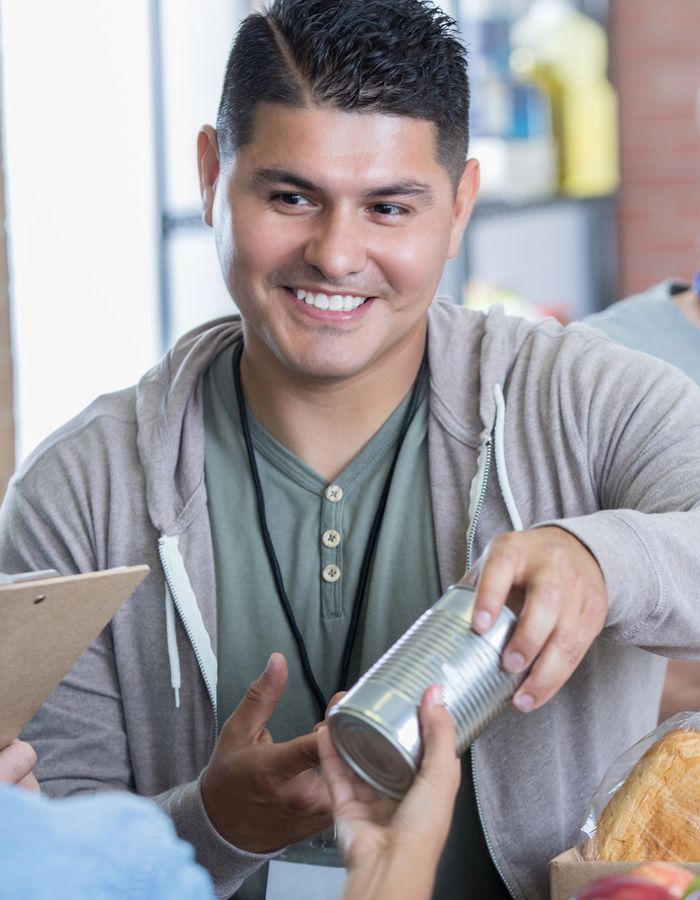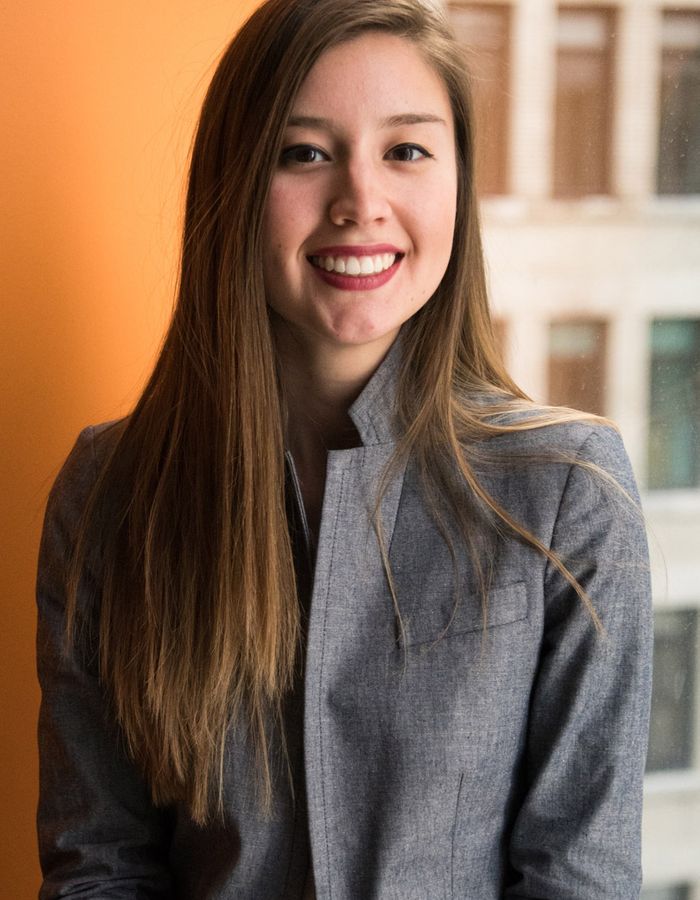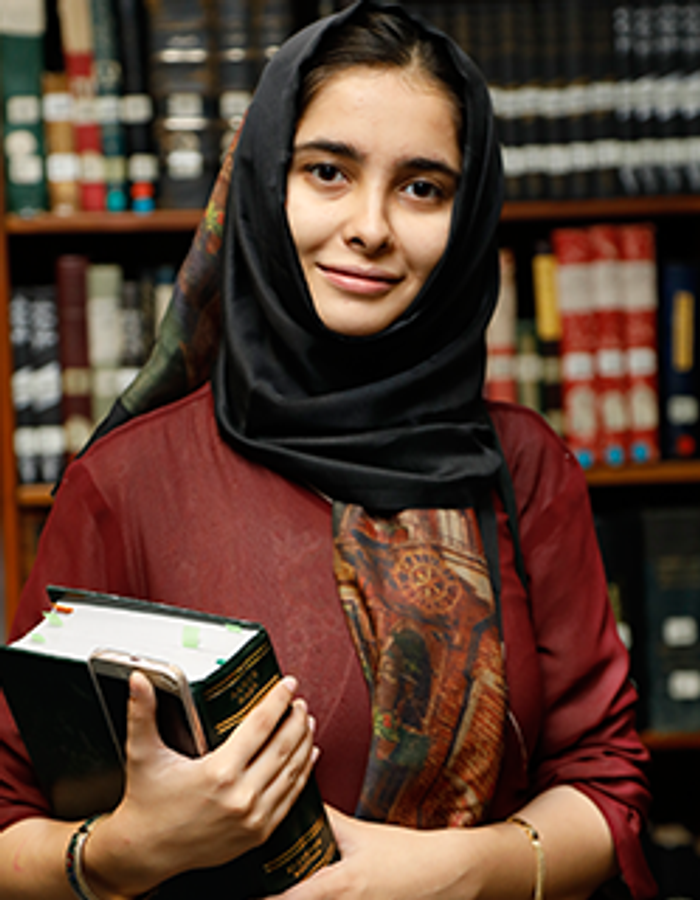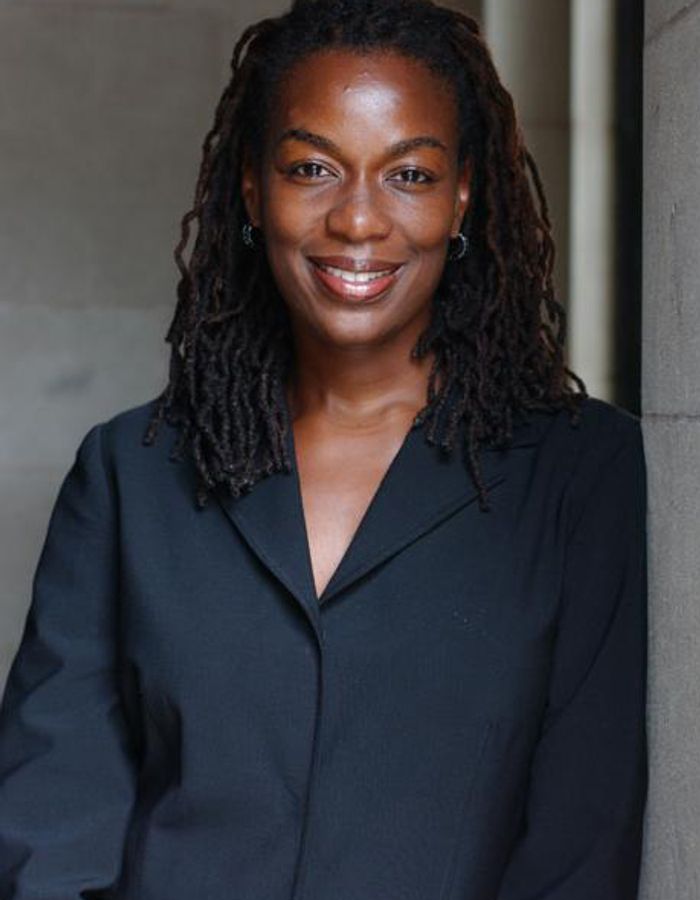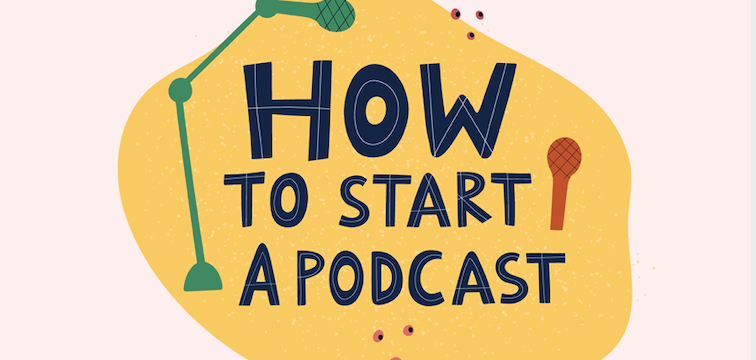
Starting a charity podcast is not hard. We’ve asked the podcast expert, Rachel Stephenson Sheff, Senior Advisor at Lightful and IG Advisors and also Producer of the successful podcast ‘What Donors Want’ to share her tips. From coming up with an idea of a podcast to the practical aspects of it such as the equipment and the software.
Enjoy the video interview or read the transcript of it below.
Here is the transcript of the interview
How did you start with the ‘What Donors Want’ podcast?
It was at a strategy away day for IG Advisors. It must have been 2016 or 2017 where I just kind of threw the idea out there. IG as a firm works on both sides of the fundraising philanthropy equation so it works with donors who are giving away resources but it also works with nonprofits who are raising their sources. And so having that unique access at the centre of the table to the donors, but also to the fundraisers without there being a power dynamic was something that caught my attention.
And I thought that would be a cool idea to have kind of a series of almost fireside chats with donors, about their fundraising preferences, a very direct and as I say, an irreverent kind of approach to speaking about fundraising and not having it be so, so glossy and so full of jargon. It’s more about really getting into the details and the nuances of what our funders are looking for and what makes a good partnership.
So that was the reason, it was a just an idea I didn’t what I was doing if it would lead to anything, it was a lot of YouTube tutorials and just kind of fiddling around on GarageBand. But here we are. So now we’re in season three and we have now over 30,000 listeners.
How does it feel going back to the first day now?
It blew my mind! I did not know that many people were interested in fundraising but I think it’s it’s a testament to the fact that a lot of fundraising resources are not very donor-centric. They take place in these echo chambers and make a lot of assumptions. That’s not, of course, true for everything. But there was definitely a trend. So I think that this is a very unique resource in that kind of context.
What’s the equipment that you’ve used to start the podcast?
Well, in the beginning, it was really basic. I went on Amazon and ordered a mic that was about 50 pounds. It’s the same one that I think you ordered. It’s called the Blue Snowball and then I ordered a pop filter, which is like the screen you see in front of microphones that helps make the sound a little smoother. So that was it. It was just those two things the mic plugged into the computer. That was the equipment.
In terms of other logistics, I use GarageBand which is free on all Macs so and it’s very intuitive. It’s pretty simple to use in terms of editing software. A lot of people use Audacity, which I believe is free, and pretty good. But to be honest, I find it a little bit clunky when I started to dabble in it, but it felt very, very PC, to be honest, and I was a bit more into the Mac version.
In terms of the recording, I tried a few different tools but I mostly ended up using Zoom because it was the most reliable. I did use a few podcasting tools online that claim to do all these amazing things and they did cut out in the middle of a few interviews, which is quite embarrassing and stressful. Zoom to me was the most reliable. So basically record the episode, most of our guests were international anyway, so it didn’t make a big difference, then put it in GarageBand, edit it, and then publish it. Pretty simple!
Where did you host your podcast?
Honestly, I haven’t done that much experimentation. We’ve always used SoundCloud but from there, we upload to iTunes and Spotify. It goes automatically. From the beginning, it was pretty organic in terms of the hosting, but also the marketing. We’re doing a few more paid pieces now that we’re sponsored, which is great. Big thank you to the Segal Family Foundation for making that possible.
Many people are also talking about Anchor lately, which seems to be easy to get you started
Yeah, and there are a lot of podcast hosters out there so I think it’s worth looking into them and explore them because this is such an evolving landscape.
What’s the process in terms of preparing or researching for a guest? How do you pick your guests?
It’s a bit flexible, I would say, we have a general season plan, more or less, but things change and current events change. And that means different conversations are needed. I’m very aware of that. But essentially, in the beginning, it was easier to pick because we were starting from scratch. It was all kinds of donors.
Now that we are three seasons in, we’re trying to be a little bit more creative and diverse with the kinds of voices we have on the show and not just going to the same big foundations. We have most of the big ones. We have Gates and Hewlett and Rockefeller. They’re all amazing interviews. But it’s also important to kind of diversify what a donor voice is and speaking to lots of intermediaries and thought leaders and activists in space.
So it’s now a question of ‘Has this voice been featured on the podcast before? Are they going to say the same thing or something different? What’s the kind of value they’re adding to the overall portfolio of conversations?’
And then it’s also about the current events. We just did a podcast interview with the Gates Foundation, who I’ve interviewed before, but now we interviewed Victoria Vrana, who’s the Deputy Director of Philanthropic Partnerships. She’s amazing. And she runs something called Giving By All at Gates, which is all about mobilising, more informed, more intentional philanthropy around the world. And so we did an episode with her just two weeks ago on COVID and donor insights.
Her team sits at the centre of that space, she’s seen the trends firsthand and we wanted to explore that with her. That was a good example of an episode that wasn’t necessarily planned but because of the current circumstances, it made sense to do that. So we shifted our guests’ order around and made sure that hers was published as soon as possible. It’s a great interview. It’s definitely worth checking out for those of you who are looking for some insight into this extraordinary time for the world, but also for philanthropy.
We also know from Lightful all the important work that Gates Foundation are doing and we’ve worked a lot together
Yeah, and Victoria gives a big shout out to Lightful in the early episode at the beginning because, as you know, there have been some amazing partnerships so that’s very cool.
What do you think makes a good podcast or a good episode?
I love podcasts and I guess it depends because there are so many different topics. I suppose it’s the fine balance between having it be authentic and scrappy, at the same time as structured and easy to follow. If it’s way too long, and if it’s just a whole bunch of tangents, you know, because of course, podcasts are mostly conversations.
Good podcasts are all about the balance of being authentic and scrappy but also structured and easy to follow at the same time
If they’re too rambly, you kind of lose your train of thought. And if it’s too long, you kind of tune out. But if it’s almost too produced, then it doesn’t feel like an intimate behind-the-scenes view into something. So I think it’s the balance. It’s feeling that human connection to whoever is in your headphones and enjoying that scrappiness while at the same time trusting that they know what they’re doing, the conversation will get to the right place. You don’t have to listen to forever. And you can relax into that.
It’s important for podcasts to understand the listeners and how they listen to podcasts. For example, until recently, we would mostly listen to them while commuting.
I think that’s a really good point. And it’s really important to remember when editing, because, in the beginning, I tend to err on the side of perfectionism, which is not great. Especially with editing because there are always more things to edit. You can get down the rabbit hole if you’re not careful.
Done is better than perfect
And the thing that I had to remind myself of is that done is better than perfect. As you say, people often listen while they’re doing something else while they’re commuting, folding laundry, cooking, whatever that is. And so they’re not probably going to pick up on some of those small details if there is a pause that is less than ideal or if there is a transition that doesn’t sound as smooth as you want it to.
Why do you think podcasts got so successful the last few years?
I think it’s a few things. It’s definitely in line with the trend of taking broadcast media and bringing it into your personal domain. Now you’re not going to the movie theatre, you watch Netflix on your computer, on your phone. That’s true for television, for movies, and it’s true for radio, aka podcasting. Not that radio doesn’t exist, but I think that it’s very much in line with that trend of changing the way that we consume media and content.
The Podcast Serial, the murder & mystery show, was a big turning point for the podcasting industry. If you haven’t listened to it, it is really good, especially season one. But that took something so intangible, murder mystery, kind of an unsolved case. And it’s the process of a reporter going in and kind of digging in some new evidence and it had some real-life implications as well. And I think that’s a really good example of what podcasting is. It’s taking something that feels intangible and distant and making it intimate and personal, and creating that relationship between the listeners.
I think that’s why it’s so popular. Most of the good podcasts, and it’s certainly what I try and do with What Donors Want, are taking something that feels intimidating and institutional and making it work.
What’s your #1 tip for charities thinking of starting their podcast?
I would say be clear about the strategic value that it’s bringing to your organisation because it does take a lot of time and effort. On one end, anyone can start a podcast. You just need a mic and a computer and you could babble on for ages. On one hand, it’s easy and relatively frictionless to do. On the other hand, if you’re starting a podcast on behalf of an organisation like a charity, you know, that is a whole other ballgame.
Be clear about the strategic value of your podcast
You’re going to need a nice logo, you’re going to need to get approval before anything goes live, you’re representing something much larger. The effort that goes into putting it out in the world has many more considerations and potential bottlenecks or gatekeepers or input required to make it a success. Not to discourage anyone because I think it’s a really powerful tool, but I would make sure you’re clear on what success looks like for you.
Sit down and think, okay, if I’m sitting in this desk in one year, what are the things I’m going to need to tell myself and perhaps my boss or my board or my donors, to justify the success of this podcast? What does success look like for me in this context? If it’s really clear what the value is, what the kind of impact first and foremost that a podcast can translate into then, by all means, go for it. But if you’re doing it for the sake of doing it or for being trendy, while most charities now more than ever are strapped for resource, get real with yourself about why you’re doing it.
You don’t want another thing on your list
Exactly and it can be so powerful. I mean, it’s a digital tool that most people can access. It helps with scale, perhaps if you need to kind of pivot some of your programmings to a more virtual format because of the pandemic, which most if not all charities are doing, maybe podcasting is the perfect solution. But just make sure that that you don’t rush into it, have a strategic decision about that.
Don’t rush into starting a podcast, have a strategic decision about that
Once you do make the decision, just go for it. Done is better than perfect. You can plan and strategize and create vision boards for the end of time. But you’re never going to learn as much as you will by actually doing an episode, trying it out and understanding where you need extra support. You can spend thousands of pounds doing this endless hours and charities now more than ever probably don’t have that.
Another tip I have, which is something that I am very grateful to have recently done. I should have done it earlier. But there you go. As I said, we’re sponsored by the Segal Family Foundation, who are amazing, amazing partners. And because of that, we’re able now to outsource the editing of the show. It is a huge difference. There are lots of podcasts editors, at a minimum of £100 per episode. From my research, if that’s helpful for people. It can go up to larger depending on what you want from them.
But outsourcing helps. It takes a long time and you have to do it in consecutive, uninterrupted hours, which is a very precious unicorn of a commodity within our daily working lives. So I would have to edit my podcasts like on planes or basically when I was travelling. It was the only time I found that there were no distractions, or trains or whatever that was. If you do have to edit it yourself, make sure that you protect that time because if you have slack notifications coming in on your screen then you forget what you’re listening to and you can’t edit as well.
Do you ever stop hearing your own voice when you listen to it over?
Never! Honestly, it’s horrible. And you’re right. It’s universal. You kind of have to get over it. I think it’s just a common human trait. I’d say I’ve learned a lot about the skill of interviewing. That’s another tip I’d say, for sure, I’m still learning and I hope to continue doing that for a long time.
But it’s not as simple as just having a list of questions and people have to respond and dig deeper and tie things back. That skill of moderation and facilitation can be quite tricky. If you are listening to this and you want to be the host or the voice of the podcast, and kind of moderate those discussions, it’s worth looking into common journalism tips and tricks and how to do a good interview.
If you have experience in that, great. If you don’t, it’s helpful to get a really good interview. It’s not as simple as just taking people through a list of questions. It’s a little bit more nuanced than that. So definitely take a little bit of time to do some research.
Thanks so much, Rachel. Pretty sure you’ve answered all my questions and probably more than what I planned!
.
You can listen to What Donors Want here.
.
You can also catch up to the Reclaim Social Podcast episodes here.
Latest articles
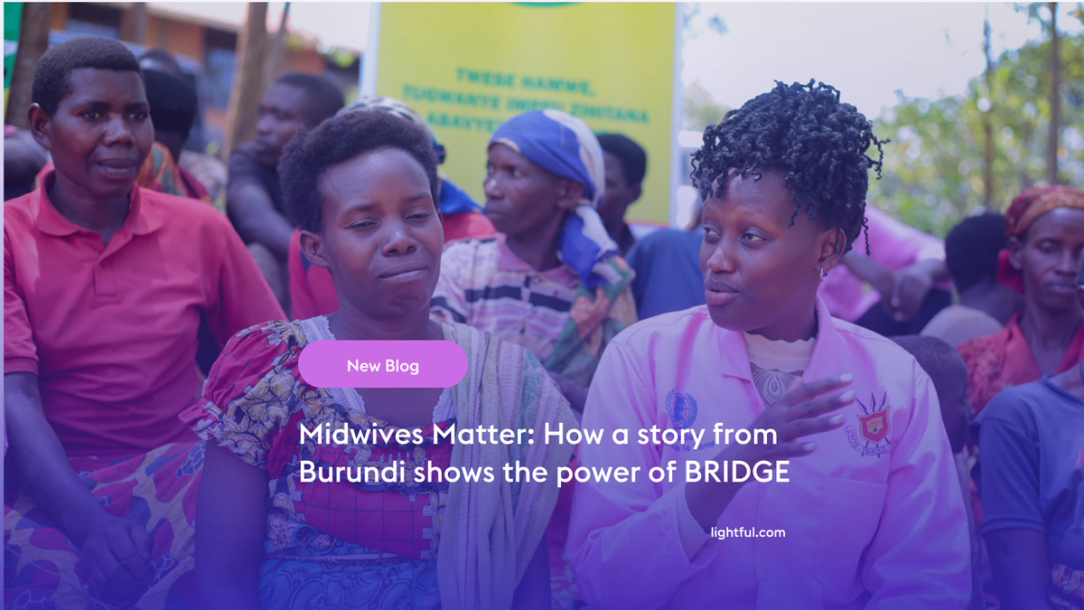
Over the past year, Lightful and the International Confederation of Midwives (ICM) have supported Midwives Associations across Africa, South Asia and the Eastern Mediterranean to build their digital confidence through our BRIDGE programme. These organisations were starting from very different places, but all shared the same goal: to use digital tools to strengthen their voice, raise their visibility and advocate for better outcomes for women and babies.
Related posts
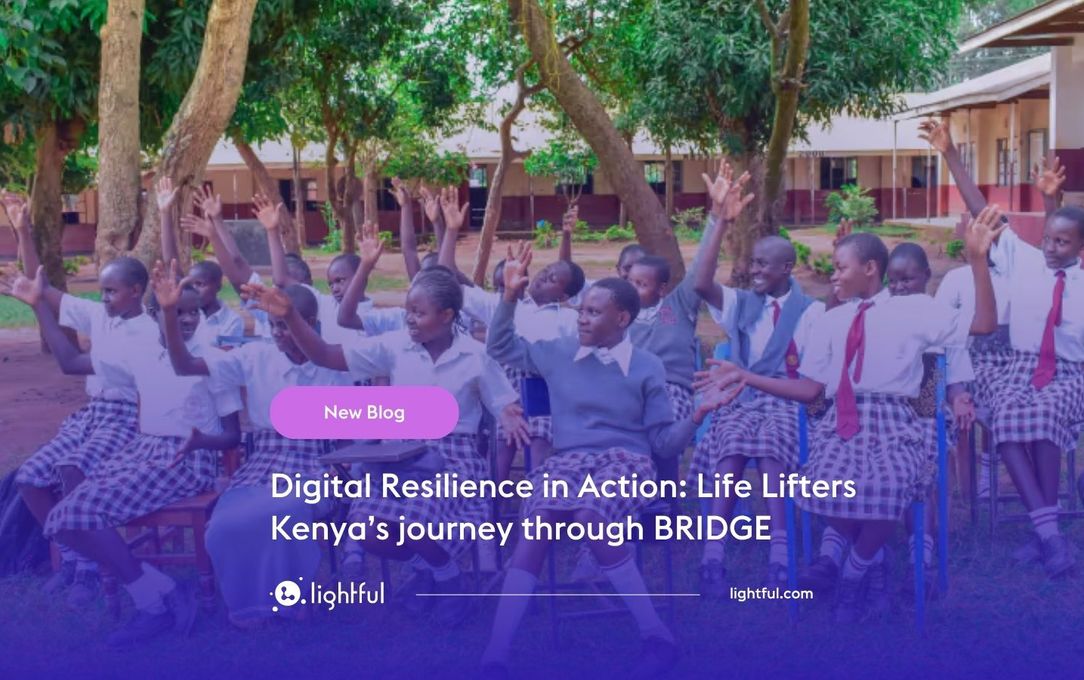
In today’s rapidly evolving digital landscape, the ability to engage online is a necessity. For nonprofits, especially those working in underserved regions or tackling complex social issues, digital tools can be the bridge between intention and impact. Whether it’s reaching new donors, advocating for policy change, or delivering services, digital capacity enables organisations to scale their mission and deepen their impact. Yet many grassroots organisations remain digitally under-resourced. That’s why Lightful created the BRIDGE programme - Building Resilience in Digital Growth and Engagement - to empower nonprofits with the skills, confidence, and strategies to thrive in the digital age and build lasting change.
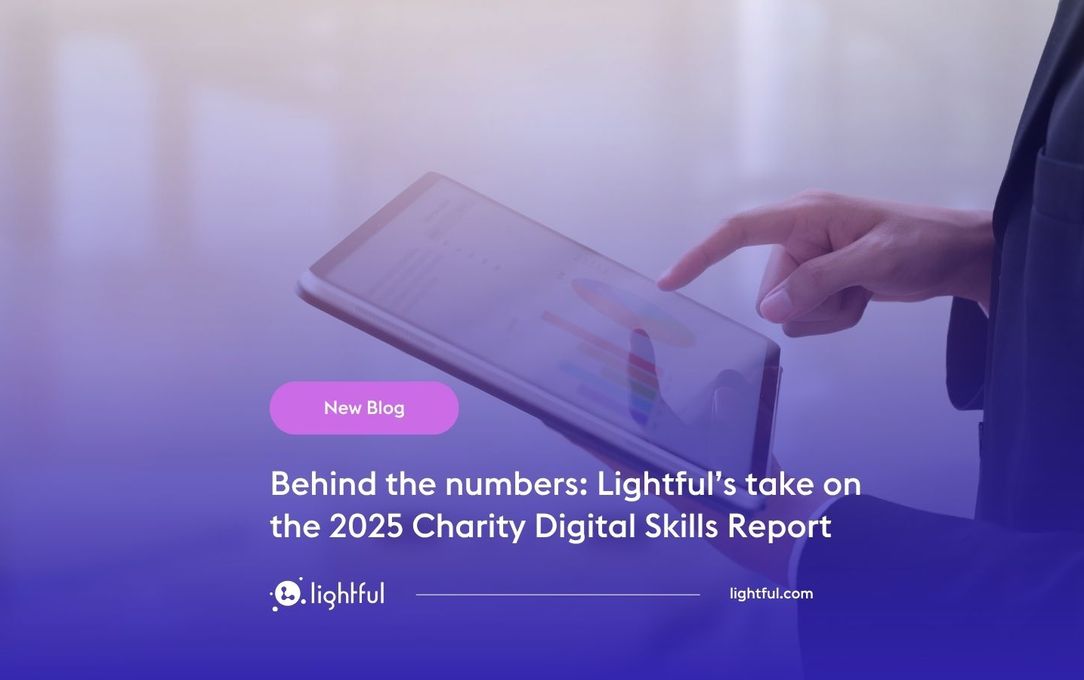
Advancing digital maturity: what Lightful has learned from supporting 3,500 charities globally
See who we help
Contact us
Want to learn more?
Email Jonathan and start a conversation



